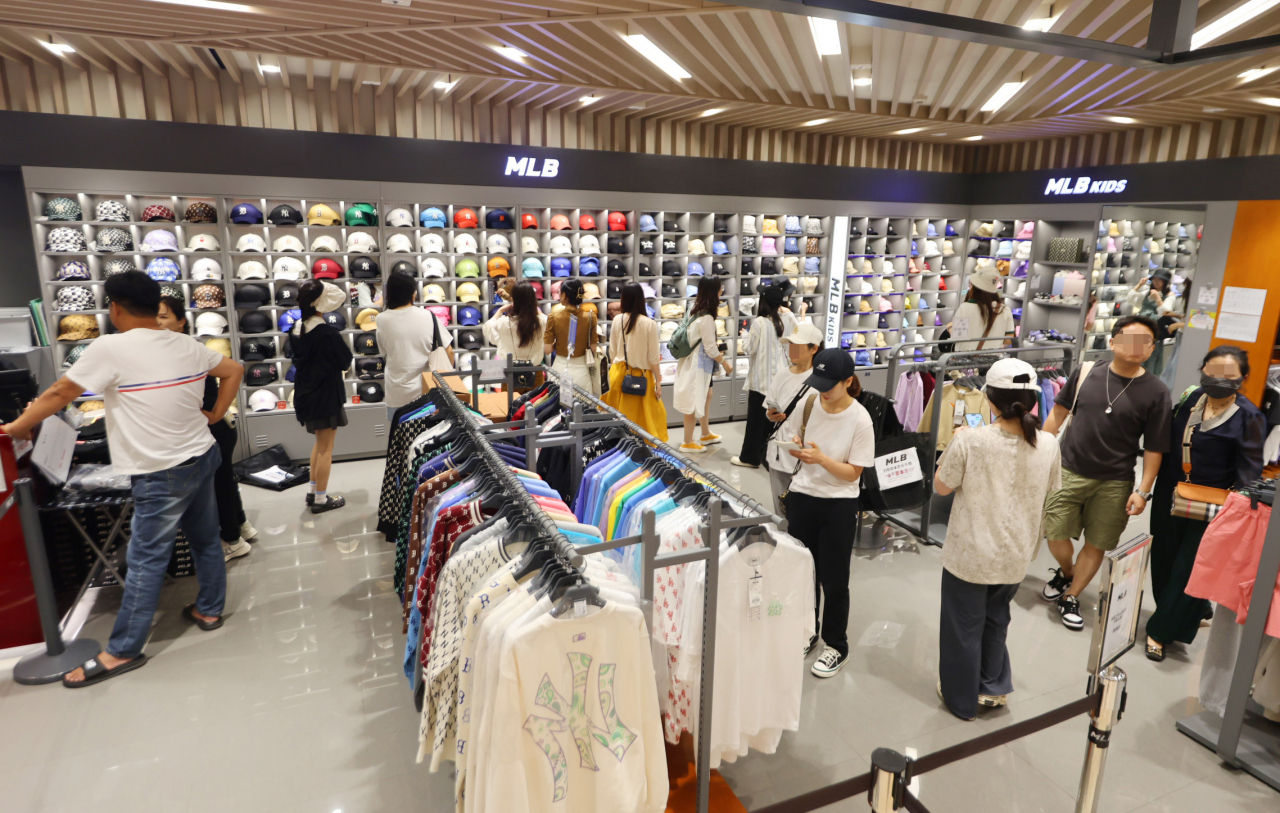 |
Chinese tourists are shopping at the Shilla Duty Free Shop in Jeju Island on Friday. (Yonhap) |
South Korean pharmaceutical firms and fashion brands are hoping that the Chinese government's recent decision to allow large groups to travel to Korea would bring a medical tourism boom and K-pop-inspired fashion windfall.
China's Ministry of Culture and Tourism said Thursday restrictions regarding group travel to Korea would be lifted for the first time since 2016, following its decision to abandon its “zero COVID” policy in January.
According to Korea Tourism Organization's data on 2016, the number of Chinese medical tourists -- or Chinese tourists that visited Korea to receive medical procedures -- visiting Korea recorded some 100,000, ranking first among those from other countries. According to the data, Chinese medical tourists took up some 30 percent of the entire medical tourists that visited Korea during the year.
Following China's recent decision to allow group travel, the demand for nonsurgical procedures, especially injectable hyaluronic acid, or a type of dermal fillers, is expected to soar, according to an official from a local pharmaceutical company.
"In China, the licensing process for dermal fillers are difficult, and there are currently very few overseas companies that received approval from Chiense medical regulator for sales of dermal filler in China," he said.
"Therefore, illegal filler procedures are prevalent in China, and there are also many illegally distributed filler products that are unsafe."
In this regard, he said Korean fillers have long been favored by the Chinese consumers, as Korean dermal fillers use hyaluronic acid that have been approved by Ministry of Food and Drug Safety and they are cheaper than fillers from other developed markets.
He said the demand for Botulinum toxin treatments was also expected to surge.
"Korean Botox is another popular nonsurgical procedures sought by Chinese travelers. They are easy to administer, require short recovery time, cheap, and high in quality," he said.
"It is likely the demand for them will increase with the recent announcement."
Korean fashion companies said they are also expecting to see a boom in sales at its channels following the news.
"Expectations are particularly high for duty-free channels, which had been stagnant during COVID-19," said an official from Fila Holdings, the holdings company of a Korean fashion brand Fila.
She said that, as Chinese people are expected to travel on a large scale during China's Mid-Autumn Festival, which takes place late September and early October, fashion companies' sales at duty-free channels during the period are expected to boom. She added the company is planning to continue to look at the trend of Chinese group tourism and refer to it for future business development.
"The retail industry seems to be making every effort to welcome Chinese tourists during the (Chinese) holiday season," the Fila Holdings official said.






![[Herald Interview] How Gopizza got big in India](http://res.heraldm.com/phpwas/restmb_idxmake.php?idx=644&simg=/content/image/2024/11/20/20241120050057_0.jpg)
